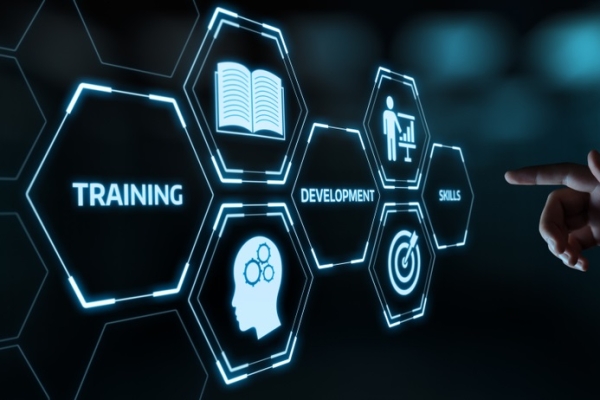Unprecedented.
Is that the best way to describe 2020? With over 11 billion words to choose from, the Oxford Dictionaries, breaking with their annual tradition, decided not to pick a single “word of the year”. Instead, they chose the “words of an unprecedented year”. Some words that entered the everyday lexicon include remotely (up 300 per cent in 2020), unmute and workcation (both up 500 per cent), among others.
How do organisations respond to the changing landscape of the workplace? How does one navigate the challenges of growing and nurturing distributed teams, while achieving the business goals and retaining the culture?
At Nua, we addressed these fundamental questions in three ways.
1. Lay the groundwork:
The first step was to create a conducive working environment, leveraging technology wherever possible. For our Engineering and Customer Experience teams, this meant setting up virtual meeting rooms where people could drop in and out for group discussions. We even have a name for our Engineering meeting room, called the CTP, i.e., ‘Chill Tech Place’.
For other teams such as New Product Development, Operations and Packaging, the challenges are varied, including product and packaging development, on-ground operational issues, etc. We were able to solve this through the efficient use of technology (e.g., video-call for new warehouse process setup), rigorous systems (e.g., QA/QC, vendor evaluation mechanisms), and vendor visits when required. This allowed Nua to resume operations across 15,000+ pincodes, within a month of the COVID-19 lockdown.
2. Build momentum:
Growing a business during COVID times requires a fundamental re-think of the organisational structure and processes. With remote teams, patchy internet connections and erratic work schedules, two aspects became imperative: clarity of vision / business objectives and team empowerment.
At Nua, we were able to bring these aspects to life by:
a) Setting up Objectives and Key Results (OKRs), a popular and effective tool to define, align and measure business goals; and
b) A quarterly employee feedback system to measure on-the-job performance for greater accountability and ownership. As companies continue to work in distributed environments, team empowerment becomes all the more important – this can be achieved through clearer decision-making guidelines at each level, e.g., budget approvals below a certain amount, fewer decision makers to improve speed of execution. In making faster decisions, an important trade-off to consider is the lack of buy-in from all the stakeholders, a much easier task in an office environment. There is also a risk of people feeling left out of the loop, especially with some decisions happening in silos.
At Nua, we have countered this through regular team manager sync-ups and monthly townhall sessions, with key decision updates and individual team deep-dives.
3. Maintain the core:
The irony of the changing work landscape is that the hard things are often the soft things, e.g., how does one keep motivation levels up? Or how does one maintain the culture of the organisation? As a young but growing organisation, it was essential for Nua to be able to hold our team together as we grew the business.
Firstly, we changed our hiring and onboarding process to reflect the new realities of the post-COVID world, emphasising adaptability and cultural fit in recruiting new candidates.
Secondly, our quarterly feedback system ensured that each team member was evaluated on their adherence to our core company values, along with on-the-job performance feedback.
Last but certainly not least, we launched a series of team bonding events, labelled “Fun from Home” (FFH), which included everything from virtual plating challenges and dance-offs to a three month-long trivia competition.
Our employee engagement levels shot through the roof, while setting a benchmark for other startups in our VC portfolio. At a time when mental health has taken centre stage, organisations need to invest a lot more effort and energy to ensure the emotional health and wellbeing of their employees.
There is no doubt that we now live in the New Normal, where the line between work and life has blurred, and daily lives and livelihoods have been significantly altered. Companies therefore need to reinvent the workplace, listen to the pulse of the organisation, and adapt to new ways of working. After all, these are unprecedented times.
Do you think hybrid work arrangements would be a common feature of the workplaces going forward?
Trending
-
SBI General Insurance Launches Digital Health Campaign
-
CredR Rolls Out 'Life Happens' Leave For Its Employees
-
Meesho Announces 30-Week Gender-Neutral Parental Leave Policy
-
Microsoft Unveils Tech Resilience Curriculum To Foster An Inclusive Future
-
60% Indian Professionals Looking For Job Change Due To COVID: Survey
-
SpringPeople And Siemens Collaborate For Digital Transformation Push
-
86% Professionals Believe Hybrid Work Is Essential For Work Life Balance: Report
-
Almost 1 In Every 3 People's Personal Life Affected Due To Work Stress
-
Meesho Rolls Out Reset And Recharge Policy For Employees
-
80% Of Talent Leaders & Academics Say Pandemic Changed Skill Needs For Youth: Report
-
Hero Electric Rolls Out 'Hero Care' Program For Employees
-
Human Capital In Collaboration With ASSOCHAM Hosts Virtual Conference
-
IKEA India, Tata STRIVE Collaborate To Create Employability And Entrepreneurship Opportunities
-
SAP India, Microsoft Launch Tech Skilling Program for Young Women
-
DXC Technology, NASSCOM Collaborate For Employability Skills Program
-
Lenskart To Hire Over 2000 Employees Across India By 2022
-
Mindtree Launches Learn-and-Earn Program
-
Tata AIA Extends 'Raksha Ka Teeka' To Its Employees
-
Swadesh Behera Is The New CPO Of Titan
-
NetConnect Global Plans To Recruit 5000 Tech Professionals In India
-
Hubhopper Plans To Hire 60% Of Indian Podcasters By 2022
-
Corporate India Needs More Women In Leadership Roles: Report
-
Aon to Invest $30 Million and Create 10,000 Apprenticeships by 2030
-
Tech Mahindra Launches ‘Gift a Career’ Initiative for Upskilling of Youth
-
40% Women Prefer Flexible Working Options in Post-COVID World: Survey
-
3 out of 4 companies believe they can effectively hire employees virtually: Report
-
Vodafone , CGI and NASSCOM Foundation launch digital skills platform
-
Odisha: Bank, postal employees to deliver cash for elderly, differently-abled persons
-
Skill India launches AI-based digital platform for "Skilled Workforce"
-
Hiring activity declines 6.73% in first quarter: Survey
-
70% startups impacted by COVID-19 pandemic
-
Bajaj Allianz Life ropes in Santanu Banerjee as CHRO
-
Over 70 Percent MSMEs look at cutting jobs to sustain businesses
-
93 Per Cent employees stressed about returning to office post-lockdown
-
Johnson & Johnson India announces family benefits for same gender partners
-
Indian firms turning friendly towards working mothers
-
Welspun India names Rajendra Mehta as new CHRO
-
Wipro partners with NASSCOM to launch Future Skills platform



Human Capital is niche media organisation for HR and Corporate. Our aim is to create an outstanding user experience for all our clients, readers, employers and employees through inspiring, industry-leading content pieces in the form of case studies, analysis, expert reports, authored articles and blogs. We cover topics such as talent acquisition, learning and development, diversity and inclusion, leadership, compensation, recruitment and many more.
Subscribe Now












































Comment